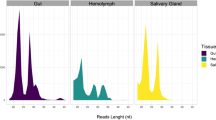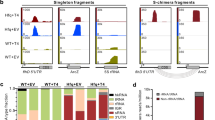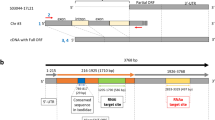Abstract
FIFTH-STAGE larvæ of Rhodnius prolixus decapitated immediately (10–20 min) after feeding have been shown1 to excrete less urine than normal controls. These results apparently contradict the report of Maddrell that “ligating the fed insect anterior to the ganglionic mass has no effect on urine production”.
This is a preview of subscription content, access via your institution
Access options
Subscribe to this journal
Receive 51 print issues and online access
$199.00 per year
only $3.90 per issue
Buy this article
- Purchase on SpringerLink
- Instant access to the full article PDF.
USD 39.95
Prices may be subject to local taxes which are calculated during checkout
Similar content being viewed by others
References
Núñez, J. A., Nature, 194, 704 (1962).
Maddrell, S. H. P., Nature, 194, 606 (1962).
Scharrer, B., Biol. Bull., 102, 261 (1952).
Dethier, V. G., and Bodenstein, D., Z. Tierpsychol., 15, 129 (1958).
Dethier, V. G., and Evans, D. R., Biol. Bull., 121, 108 (1961).
Author information
Authors and Affiliations
Rights and permissions
About this article
Cite this article
NúÑEZ, J. Probable Mechanism regulating Water Economy of Rhodnius prolixus. Nature 197, 312 (1963). https://doi.org/10.1038/197312a0
Issue date:
DOI: https://doi.org/10.1038/197312a0
This article is cited by
-
Phototaxis in the walking male and female fly (Calliphora erythrocephala Meig.)
Biological Cybernetics (1978)
-
Central Nervous Control of the Mechanical Properties of the Cuticle in Rhodnius prolixus
Nature (1963)



